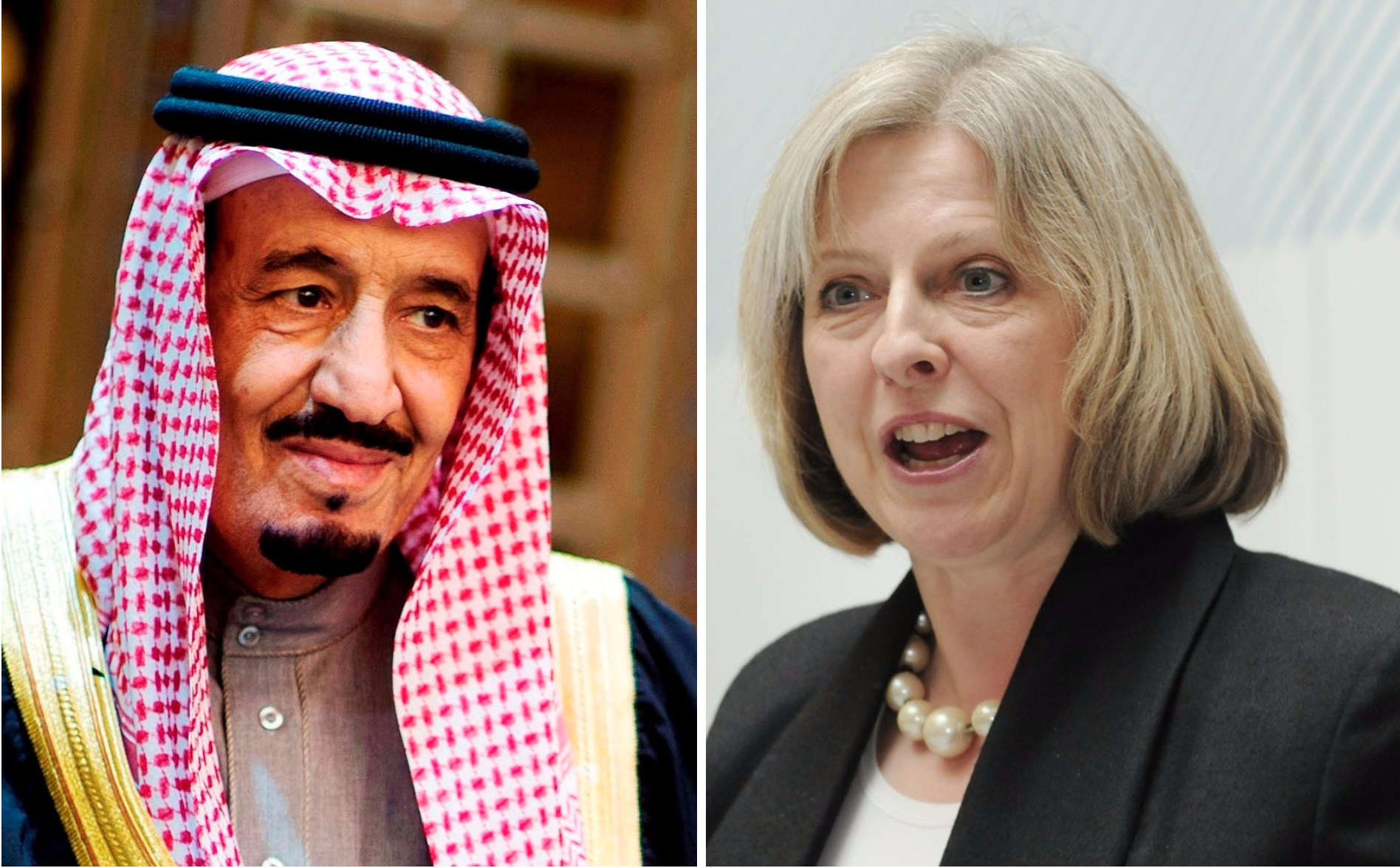The UK has a long history of championing human rights. From the signing of Magna Carta in 1215 to the Human Rights Act in 1998, we have strict laws in place to protect rights such as freedom of speech and family life, as well as to prevent torture, inhuman, and degrading treatment.
Other countries around the world, however, have not lived up to our standards. Saudi Arabia, for example, has been widely criticised for limiting people’s rights to freedom of expression, as well as imprisoning critics and activists. Torture remains common and women face discrimination from the law itself. The country is also under investigation for international war crimes for its actions in Yemen, where more than 10,000 people have died.
It’s therefore no surprise that Prime Minister Theresa May has faced a backlash following a recent state visit to the country.
‘A shocking human rights record’
 Yemen Image: Almigdad Mojalli / VOA / Wikimedia Commons
Yemen Image: Almigdad Mojalli / VOA / Wikimedia Commons
Yemen is one of the poorest countries in the Arab world, with a long-running conflict between the internationally-recognised government and the Houthi rebel movement.
More than 10,000 people are reported to have been killed in the conflict, with another 40,000 injured, and the country also suffering from famine. The majority of these deaths have come from Saudi-led – and UK backed – international air strikes. The Metropolitan Police’s war crimes team is now investigating potential crimes “committed by the international coalition who have intervened in the conflict between pro- and anti-government forces.”
The Prime Minister should put human rights and international law at the centre of her talks with Saudi Arabia’s…
Posted by Jeremy Corbyn on Tuesday, 4 April 2017
As well as having diplomatic ties with Saudi Arabia, Britain also supplies the country with weapons, selling £3.3 billion worth of arms to the country since March 2015. The Campaign Against Arms Trade is currently in the process of fighting the Government on the legality of the sales in the High Court.
Travelling to Saudi Arabia for talks with the country’s leaders Mrs May has reignited criticism on the issue, with Labour Leader Jeremy Corbyn saying she should put “human rights and international law at the centre of her talks,” as UK weapons are adding to a”humanitarian catastrophe”.
To Engage, Or To Boycott?
.@theresa_may on Syrian refugees, Saudi Arabia, human rights and #Brexit, speaking to @faisalislam in Amman, Jordan pic.twitter.com/Tx7H2PYhPA
— Sky News (@SkyNews) April 4, 2017
Speaking to journalists on the trip, the Prime Minister stressed she will put humanitarian concerns to her Saudi counterparts – and that the UK is a large donor to the aid effort in Yemen.
However, while many have called for a boycott on arms sales or severing diplomatic ties with the country, Mrs May instead argues these issues can only be raised if the two countries “have [a] relationship”:
Rather than just standing on the sidelines and sniping, it’s important to engage, to talk to people, to talk about our interest and to raise, yes, difficult issues when we feel it’s necessary to do so.
Here lies the key issue – is it better to boycott countries with such bad records on human rights – or should we engage with them to try and change practice?
The Government is set to agree to even closer ties with the nation on the basis of the latter, noting the country has promised to reduce its dependence on oil, boost the number of women in work, and develop sectors such as health, education, and culture as part of its Vision 2030 programme.
My cartoon Wednesday @TheTimes. Trade trumps #Humanrights in #SaudiArabia pic.twitter.com/dCoydkLQwf
— Peter Brookes (@BrookesTimes) April 5, 2017
It’s not a view that’s shared across the political spectrum though, with politicians including The Green Party’s Caroline Lucas MP and Chair of the Joint Committee on Human Rights Harriet Harman MP questioning the move.
However, it’s unlikely the issue will go away until the Government is able to show some evidence that the relationship is working and that Saudi Arabia is keeping to its promises of reform. Here’s hoping that Theresa May is right, and the UK really can be a force for good in international human rights.
Want to find out more about your human rights? Take a look at this lot:
- See our infographic on the history of human rights
- Read 15 things you probably never knew the Human Rights Act did for us
- Look at this feature on the background to Yemen war







